Iran and the beginning of retreat from four Arab capitals - By Ali Al-Amin, Janoubia
The messages Iran has been receiving from various directions are no longer oblivious to anyone. Even Iran’s decision makers now realize that the four Arab capitals, which they celebrated seizing a few years ago, have changed and are no longer the same cities that’s policies Iran had dominated.
The so-called ‘Resistance Crescent’ or the ‘Shiite Crescent,’ as some like to call it, is no longer a bright crescent lit with Soleimani lights, in reference to Qassem Soleimani. The disastrous scene reveals how the four destroyed or weakened Arab cities from Sanaa to Baghdad to Damascus and Beirut are now trying to avoid death, which is trying to kill whatever is left of them.
Iran’s colonialism
The Iranian decision maker is also aware that what he has accomplished in these Arab cities is a mere control of cities whose structures have been severed from their history and whose sons and symbols of life are being exhausted. This is all due to the wounds that have been inflicted on the Arab-Islamic convention and due to underestimating the sanctity of societies.
This is in addition investing in destruction which requires a lot more than dealing with the dwindling financial and economic capabilities. Men have also been tamed and coercively dragged into sectarian mazes and into everything relevant to slogans such as “the chosen people of God” and “the saved group.”
OPINION: Saudi Arabia, UAE forges multi-pronged partnership
Iran’s influence in Arab areas is not fundamentally different from any colonial concept. In fact, Iran has excelled when compared to old and modern colonial examples, especially in terms of destructive investment in Arab communities’ infrastructure.
Its tools surpassed those of other colonial states and of ancient and modern colonial models as they invested in the destruction of Arab societies. Iran’s expansion of its influence is not based on strengthening a renaissance project. This influence does not rely on a political basis relevant to liberalization or strengthening the state project. Instead, it aims to ruin the unity of societies and strengthen the influence of sectarian fanaticism.
Tehran is not the only one responsible for what happened in these Arab capitals as the Arab regional system is not innocent, and we also do not exonerate the international community, especially the US and Russia from responsibility in this regard. But Iran’s responsibility has its own characteristics because of what it had committed against these countries — be it in Iraq, Syria or others.
In essence, Iranian policies were not in conflict with goals of destroying states. The slogans “the road to Jerusalem” and “the resistance” in the Arab world are nothing but catchy phrases of systematic destruction projects against Arab states and societies. The strategic endgame of the Iranian project in the Arab region is to further marginalize the Arab regional order, fracture Arab societies and present the Arab region on a gold plate to major countries, chaperoned by Russia and the United States.
The Great Game
The Iranian decision maker is aware that after all of his “achievements”, he is now trapped between the jaws of Moscow and Washington, in other words Iran’s options in the Arab region have diminished when these two capitals decided on limiting the Iranian role.
In Yemen, despite the presence of the Arab and Islamic coalition which is led by Saudi Arabia in support of Yemen’s legitimate authority for over three years, the Houthis’ decline has begun ever since Washington conveyed its strong message to Iran via its decision to withdraw from the nuclear deal.
ALSO READ: The future of culture in Saudi Arabia
The latter had been signed during former US president Barack Obama’s term enabling further expansion for Iran’s allies in Yemen, Syria, and previously in Iraq and Lebanon. The US message has launched a new phase in curbing Iranian influence, yet this does not reflect superpowers’ desire to end this influence but rather to redefine and limit it in a way that won’t disturb the system of international control over the region.
This is transparent in British Prime Minister Theresa May’s latest statements to Saudi Crown Prince Mohammed bin Salman, following the start of the collapse of Houthi forces in more than one region in Yemen, where she argues that the solution in Yemen is political and not military. The British position comes after western media outlets reported that EU officials have been conveyed Iranian messages stipulating that Iran is willing to make concessions on Yemen to protect the nuclear agreement between it and the Europeans.
Russian-Israeli ties
Moreover, Iran has upon Russia’s orders responded to Israel’s conditions of retreating from the southern Syrian borders. It did in fact withdraw dozens of kilometers away from these borders although during the war in Syria, it brandished slogans proclaiming its resistance of Zionist projects and its intention to pave a way to Jerusalem. Realistically, Iran’s smoothness in Syria have only gone hand in hand with Israel’s interests as the latter has become sacred and not to be the least harmed from near or from far.
The Russian-Israeli agreements in Syria have proven to surpass Iran’s calculations. Despite all claims on Russian-Iranian relations, military facts have shown to be true that Israel’s dealings in Syria have Russia’s approval, if not to say blessings, thus reflecting the reality of the unshakable Israeli-Russian ties. The same Russia which Qassem Soleimani appealed for its military help three years ago is the one who is now asking and pressuring Iran towards further geographical retreat in Syria.
Arab Shiite throwing Iran yoke
In Iraq, the results of the parliamentary elections show that Shiite dynamics in this country are no longer linked to Iranian calculations. The leader of the Quds Force, Qassem Soleimani, is no longer the man who can force Shiite components to act according to the interests of the Quds Force. Shiite leader Muqtada Sadr, who won the most seats in the elections, is hardening his tone towards Iranian interference. The bloc of Prime Minister Haider al-Abadi is not likely to revolt against the Iranian administration in Iraq.
Nevertheless, his bloc realized that Sadr’s victory is an opportunity to form an Iraqi parliamentary coalition with preset conditions before inviting forces loyal to Iran. This wasn’t the case in previous elections. In the past, Iran and its supporters were the ones defining the course while others followed.
OPINION: Qatar: A year of dreams undermined
The Iraqi opportunity today is that there is a realistic possibility to form a parliamentary majority with an Iraqi leadership that is not hostile to Iran, but certainly not loyal to it. The Iraqi political scene is moving with firm and clear strides towards a new path with the characteristic of reducing Iranian influence, which is still active and strong, but further retreating and weakening.
The capital Beirut, where Hezbollah is the Iranian crown jewel in the Arab region, doesn’t appear to be in the realm of any attempt to change the internal balance of power that could threaten Hezbollah's control. This was emphasized in recent parliamentary elections, which seemed to be of no interest to Arab or international order.
No external efforts have been made to obstruct the expansion of Hezbollah in the parliament and in the state, as was the case in previous elections, as regional states hostile to Iran are aware that the balance of power in Lebanon is not related to results of parliamentary elections. The victory of the March 14 Alliance in 2009 had no meaning in the balance of power which was decided by weapons before anything else.
Hezbollah’s retreat
The new thing is that Lebanon must stay under the protective helm of stability even if supervisedby Hezbollah, yet the new aspect is that Hezbollah has started returning to Lebanon from Syria. According to Western diplomatic sources, this new phase calls for “Hezbollah to adapt more to the conditions of the state.”
However, it’s no secret that adaptation is difficult and there are bets that more sanctions will be issued against Hezbollah in coming months and are expected to affect the Lebanese state. This country, which has become the center of regression in recent years at several political, administrative and economic levels and which is likely to become more fragile, has been the captive of the statelet and its regional expansion. The Iranian model of domination and influence in Lebanon is expected to worsen the general deterioration and lead to more international sanctions that have become the only solution to salvage Lebanon from dissolution, fragility and downfall.
The four Arab capitals are still in an unenviable situation. The outcome of the Iranian influence in them has only brought insecurity to citizens and made them witnesses to regression and fracture of their countries. The Iranian leadership today is facing the dilemma that it has contributed to in these capitals. The only way out of this dilemma requires yielding to the conditions of the big powers, which have apparently decided to reduce the role of Iran.
Latest News
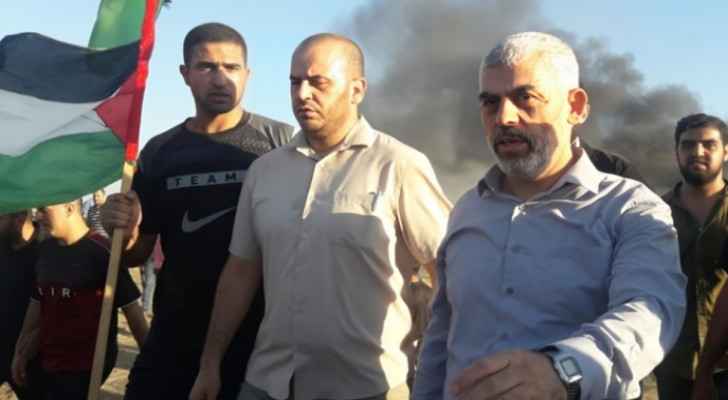 'Sinwar Above Ground': Hamas official's revelation shocks Israeli Occupation
'Sinwar Above Ground': Hamas official's revelation shocks Israeli Occupation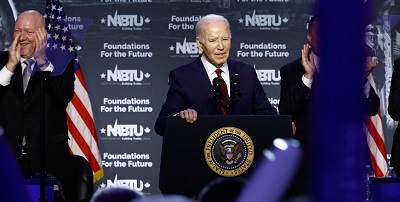 US president signs bill to provide new aid for Ukraine
US president signs bill to provide new aid for Ukraine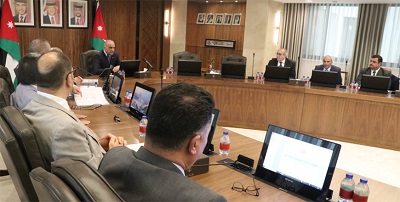 Prime minister directs government to support IEC ahead of upcoming elections
Prime minister directs government to support IEC ahead of upcoming elections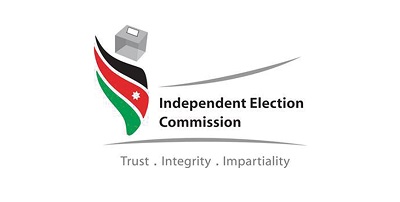 Parliamentary elections for 20th Lower House to be held on September 10 – IEC
Parliamentary elections for 20th Lower House to be held on September 10 – IEC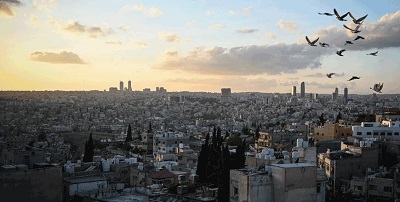 Amman Chamber of Commerce says GDP grows by 4.4% in 2023
Amman Chamber of Commerce says GDP grows by 4.4% in 2023
Most Read Articles
- More than 100 arrested at US university pro-Palestinian protests
- Irish foreign minister visits Palestinian refugee camp in Amman, vows support to UNRWA
- King, French president discuss regional developments
- Senior Hamas official says movement is “awaiting response” in ceasefire negotiations
- Jordan remembers Queen Zein
- Ahead of feared Rafah invasion, Palestinians mourn bombardment dead
- US says downed Houthi anti-ship missile, four drones
- JAF carries out six more airdrops of aid into Gaza
- Cassation Court upholds over 3-year sentence for drug dealer
- Jordan completes human rights review before council’s evaluation Jordan completes human rights review before council’s evaluation